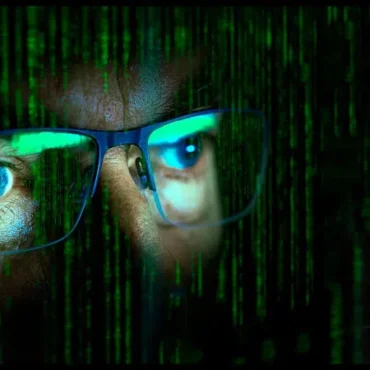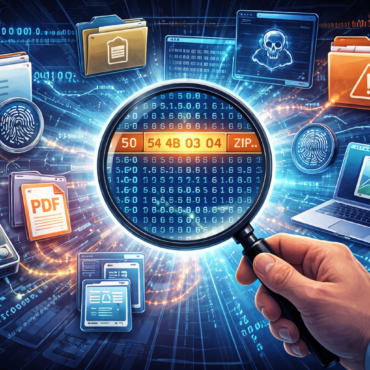Introduction: What is a Cybercrime Investigator?
A cybercrime investigator is a specialized professional in digital forensics and cybersecurity who works to uncover and stop illegal activities conducted via the internet or computer systems. These professionals analyze digital evidence, trace cyberattacks, and support law enforcement and organizations in identifying culprits involved in cyber-related crimes such as hacking, identity theft, ransomware attacks, and online fraud.
What Do Cybercrime Investigators Do?
Cybercrime investigators are responsible for:
-
Investigating computer-based crimes.
-
Collecting, preserving, and analyzing digital evidence.
-
Working closely with law enforcement or corporate security teams.
-
Using forensic tools to recover deleted or encrypted data.
-
Preparing technical reports for legal proceedings.
-
Monitoring suspicious network activity.
Cybercrime Investigator Job Description
A typical job description includes:
-
Conducting forensic investigations on digital devices.
-
Gathering and analyzing logs, emails, and internet activity.
-
Testifying in court regarding cyber evidence.
-
Ensuring evidence chain-of-custody.
-
Collaborating with cybersecurity experts and legal teams.
Cybercrime Investigator Skills and Experience
Key Skills:
-
Strong analytical thinking and attention to detail.
-
Proficiency in digital forensic tools (e.g., EnCase, FTK, Magnet AXIOM).
-
Understanding of network protocols, encryption, and malware.
-
Familiarity with laws and regulations related to cybercrime.
Preferred Experience:
-
Prior law enforcement or IT security background.
-
Hands-on experience in forensic investigations.
-
Exposure to cybersecurity threat analysis.
Steps to Becoming a Cybercrime Investigator
Step 1: Obtain the Right Education
-
Bachelor’s Degree in Computer Science, Cybersecurity, Criminal Justice, or related field is typically required.
-
Some roles may prefer a Master’s degree in Digital Forensics or Cybersecurity Law.
Step 2: Gain Relevant Experience
-
Entry-level jobs in IT, cybersecurity, or law enforcement can build foundational skills.
-
Volunteering or internships with cybercrime units or forensic labs can offer practical exposure.
Step 3: Get Professional Certifications
Certifications validate your skills and boost credibility. Common certifications include:
-
CHFI (Computer Hacking Forensic Investigator)
-
CEH (Certified Ethical Hacker)
-
GCFA (GIAC Certified Forensic Analyst)
-
CISSP (Certified Information Systems Security Professional)
-
CFCE (Certified Forensic Computer Examiner)
Step 4: Build Technical and Legal Knowledge
Step 5: Apply for Cybercrime Investigator Roles
-
Explore job roles in government agencies, police departments, law enforcement cyber cells, private forensic labs, and corporate cybersecurity teams.
Education Required for Cybercrime Investigator
-
Minimum Requirement: Bachelor’s in IT, Cybersecurity, Computer Science, or Criminal Justice.
-
Recommended: Master’s in Digital Forensics, Cyber Law, or Cybersecurity.
-
Additional: Cybersecurity diplomas or online courses (Udemy, Coursera, etc.) can enhance skills.
Career Path of a Cybercrime Investigator
-
IT Technician or Network Analyst (Entry-level)
-
Digital Forensics Analyst
-
Cybercrime Investigator / Cybersecurity Analyst
-
Senior Investigator / Cybersecurity Consultant
-
Forensics Lab Director / Cybercrime Unit Head
How Much Do Cybercrime Investigators Make?
-
India: INR 4 LPA – 15 LPA depending on experience and location.
-
USA: USD 60,000 to 120,000 per year.
-
Government and private sector salaries may vary.
Frequently Asked Questions (FAQs)
Q1. Can I become a cybercrime investigator without an IT degree?
A: Yes, if you have experience in law enforcement and acquire technical certifications.
Q2. Is CHFI enough to get a job in cyber forensics?
A: It helps but should be complemented with hands-on experience and foundational knowledge.
Q3. Are there government jobs for cybercrime investigators in India?
A: Yes, through cyber cells, law enforcement, and forensic labs like CFSL and SFSL.
Q4. Can I work internationally as a cybercrime investigator?
A: With the right certifications and experience, many international opportunities are available.
Q5. What tools should I learn?
A: EnCase, FTK, Autopsy, Cellebrite, and Magnet AXIOM are widely used.
Q6. Is programming knowledge important?
A: Basic scripting (Python, Bash) is helpful but not always mandatory.
Q7. How long does it take to become a cybercrime investigator?
A: Typically 3-5 years, including education, experience, and certification.
Q8. What are the working hours like?
A: Regular office hours, but urgent cases may require night shifts or weekend work.
Q9. Can freshers become cybercrime investigators?
A: Yes, if they pursue relevant education and internships.
Q10. Is cybercrime investigation a risky job?
A: It involves sensitive data handling but is generally not physically risky.
Read more…. hawkeyeforensic.com
Conclusion
Becoming a cybercrime investigator requires a mix of education, certifications, hands-on experience, and a passion for justice and cybersecurity. As cyber threats continue to rise, skilled professionals in this field are in high demand across both public and private sectors. If you’re analytical, tech-savvy, and interested in solving digital mysteries, this career could be an ideal path for you.





Post comments (0)